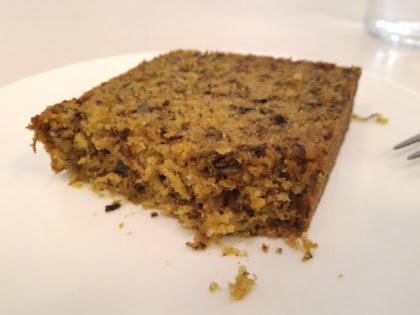So the story goes that not only Newton was afraid of being criticised for the stuff in Principia, the Royal Society also refused to fund the book because it nearly bankrupted itself, publishing something called The History of Fish.
And it was astronomer Edmund Halley who stepped in - a couple of times - to ensure the publication of "the revolutionary work – which proved mathematically that the same set of laws govern everything in the universe, from small objects to the Earth".
Unfortunately for Halley: "After the publication of Principia, the Royal Society informed Halley it could no longer afford his annual £50 salary, and instead paid him with left over copies of 'The History of Fish.'"
Oh yes, The Telegraph brought us this interesting titbit to tell us that an exhibition at Cambridge University - Lines of Thought: Discoveries that Changed the World - is now open to the public and runs until September 30, in conjunction with Cambridge's 600th anniversary. Do drop by if you're in the neighbourhood.
Apple owes as much as US$450m for conspiring with five publishers to raise the price of e-books years ago, in response to Amazon's book-pricing policies. Most of the money will go to those who bought books between April 2010 and May 2012 as reimbursements for the higher prices they had to pay.
I'd been following this saga for a while because I'd thought it would have some bearing on how we read, buy and price books in the long run, Yet, it's 2016 and I still prefer physical books and can't find an e-reader I like or can afford. But it seems unceremonious to drop this apple without some acknowledgement.
Here's an interesting story about a "Twitter book hustler". Shea Serrano used the social media platform to make a book viral, including his own. So apparently, it's all because he's "real". "His tweets give off a dude-down-the-street vibe that seems to resonate with his followers," the Marketplace article goes.
Serrano's editor also said his way of communicating with his fans "feel like he made them a part of something, and they are a part of something." Doesn't this sound like how some indie publishers network with their followers?
On a related note: at a tiny gathering of aspiring writers, literary agent Jan Kardys spoke about, among other things, "the need to focus on creating public platforms and using social media to spread the word about themselves and their work". She also stated that publishers these days "want authors to prepare an advertising campaign" before reaching out to them.
Of course, she also suggested getting the help of a lit agent, but stressed that "It's not the job of an agent to teach you how to write."
She suggested connecting with people who would promise to be 'brutally honest' in their evaluations of the work.
Kardys didn't promise that it would be easy.
"You have to get your book in great shape," she said.
Elsewhere:
- Shutters are coming down on the long-running book blog Bookslut. So far no reason has been given for the impending closure.
- RIP Anita Brookner, whose novel Hotel du Lac won the 1984 Booker Prize for fiction.
- Have a gander at this review of The Gun by Fuminori Nakamura, "a taut tale about a university student's obsession with a pistol in a country where private ownership of firearms is virtually unknown." Will we see more translations of Japanese crime fiction?
- "What is the point of critics?" New York Times film critic A.O. Scott makes his case for criticism in his book, Better Living Through Criticism (I mentioned it here somewhere). The piece in The Guardian includes some views from other critics.
- "I would like to set fire to the term 'serious reader' and throw its ashes into the sea." Over at Book Riot, Maddie Rodriguez makes the case against the "serious reader" and suggests some other types of readers we can be.
- Who is Elena Ferrante? The guessing game goes on as writer Marcella Marmo, professor of contemporary history at the University of Naples Federico II, is forced to deny she is the mystery pseudonym known for a series of acclaimed Neapolitan novels, as claimed by a peer.
- "We Israelis tend to forget that we are a nation of refugees." Israeli novelist, screenwriter and psychologist Ayelet Gundar-Goshen is interviewed at The Guardian for her novel, Waking Lions. Despite her objections to some of the things her country is doing, she's not ready to pack up and go. "I think that to really love your country is to stand there and to fight when you think what it's doing is wrong."
Categories:
Book Marks





